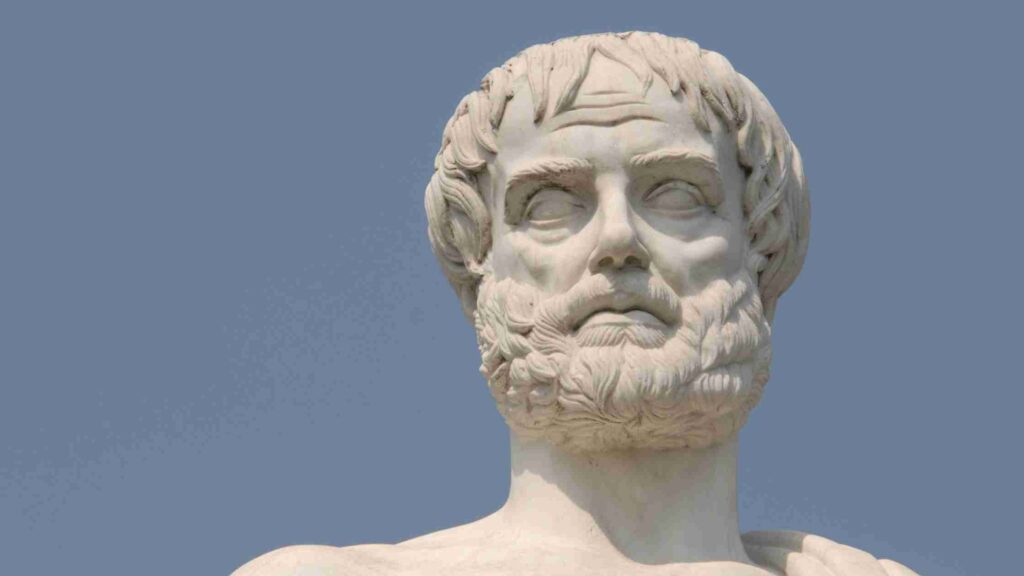Introduction: Aristotle
Aristotle, the Greek philosopher, is widely considered to be one of the greatest thinkers in the history of Western philosophy. He was a student of Plato, another famous philosopher, and a teacher of Alexander the Great. Aristotle developed a unique philosophy that focused on the pursuit of virtue as the key to human happiness. In this blog post, we will explore Aristotle’s philosophy of virtue, and how it can be applied to our modern-day lives.

Understanding Aristotle’s Philosophy
Aristotle believed that every human being has a purpose in life, and that the ultimate goal of human existence is to achieve happiness. He also believed that happiness is not a fleeting emotion but a state of being that can only be achieved through a life of virtue. According to Aristotle, virtue can be defined as a moral excellence that leads to a fulfilling life.
Aristotle’s philosophy of virtue can be broken down into three main components:
- Ethical Virtue – The virtue that is related to our action and choices. It involves developing a strong moral character and making the right choices based on ethics and morality.
- Intellectual Virtue – The virtue that is related to our rational thinking and reasoning. It involves developing a sound and impartial judgment, and using our reasoning skills to make rational decisions.
- Practical Wisdom – The ability to determine the correct course of action in any situation. It involves gaining knowledge and experience to effectively apply ethical and intellectual virtue to our daily lives.
Aristotle believed that these three components of virtue are interdependent and cannot be fully developed in isolation. Instead, they must be cultivated together to achieve a life of virtue and true happiness.

Applying Aristotle’s Philosophy to Modern Life
Now that we have a basic understanding of Aristotle’s philosophy of virtue, let’s explore how it can be applied to our modern-day lives. Here are a few actionable insights to help you implement Aristotle’s philosophy of virtue:
1. Cultivate Ethical Virtue
In today’s world, it’s easy to get caught up in the pursuit of material success and wealth. However, Aristotle believed that true happiness can only be achieved through the cultivation of ethical virtue. To develop ethical virtue, we must strive to live a life of moral excellence and make the right choices based on ethical principles. Here are a few practical tips to help you cultivate ethical virtue in your daily life:
- Practice honesty and integrity in all your interactions
- Treat others with respect and kindness
- Practice self-control and avoid excessive indulgence in material pleasures
2. Develop Intellectual Virtue
Aristotle believed that it’s not enough to simply cultivate ethical virtue. We must also develop intellectual virtue to make sound and rational decisions. Intellectual virtue involves gaining knowledge and experience to build a strong foundation of reasoning and judgment. Here are a few practical tips to help you develop intellectual virtue in your daily life:
- Read books and articles that challenge your existing beliefs
- Seek out diverse perspectives and opinions
- Regularly engage in critical thinking and problem-solving activities
3. Cultivate Practical Wisdom
Finally, Aristotle believed that practical wisdom is essential to effectively apply ethical and intellectual virtue to our daily lives. Practical wisdom involves the ability to determine the correct course of action in any situation, based on our understanding of ethics and reason. Here are a few practical tips to help you cultivate practical wisdom:
- Seek advice from mentors and experienced individuals
- Reflect on past experiences and situations to gain insights
- Regularly practice decision-making and problem-solving activities

Conclusion
Aristotle’s philosophy of virtue provides us with valuable insights into the pursuit of happiness and a fulfilling life. By cultivating ethical, intellectual, and practical virtue, we can develop a strong moral character, make sound decisions, and effectively apply our knowledge and experience to achieve true happiness. While these virtues may not come easily, with consistent practice and effort, we can all strive to live a life of true virtue and happiness.






